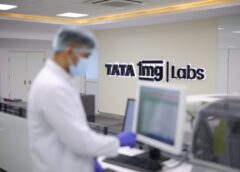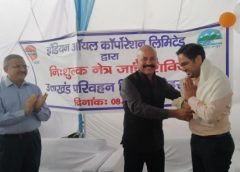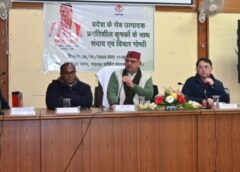Dehradun / January 27, 2023: Nearly 76% of the Indian population suffers from vitamin D deficiency, according to data from tests of more than 2.2 lakh people conducted across 27 cities in India by Tata 1mg Labs recently. While 79% of men overall were found with lower-than-desirable levels of vitamin D in their bodies, for women, the figure was 75%. Vadodara (89%) and Surat (88%) were found to have the highest and Delhi-NCR the lowest (72%) incidence of vitamin D deficiency among all the cities from where the data was collected. Interestingly, younger people were found to be much more affected with Vitamin D deficiency compared to the national average, an analysis of Tata 1mg data found.
Its prevalence was highest in age group of below 25 years (84%), followed by 25–40 years (81%).All-India data on Vitamin D levels based on analysis of 2.2 lakh samples between March-August 2022: Gender Percentage Male 79% ,Female 75% , Age Group Percentage Below 25 years 84% 25-40 81% City-wise incidence of vitamin-D deficiency across 27 cities in India .
City vitamin-D Deficiency Vadodara 89%, Surat 88%, Ahmedabad 85%, Nagpur 84%, Bhubaneswar 83%, Nashik 82%, Patna 82%, Visakhapatnam 82%, Ranchi 82%, Jaipur 81%, Chennai 81%, Bhopal 81%, Indore 80%, Pune 79%, Kolkata 79%, Varanasi 79%, Mumbai 78%, Allahabad 78%, Lucknow 78%, Kanpur 77%, Bangalore 77%, Agra 76%, Hyderabad 76%, Chandigarh 76%, Dehradun 75%, Meerut 74% and Delhi NCR 72%.
Known as the sunshine vitamin, vitamin D is essential to the growth, development, metabolism, immunity, bone health, and mental health of people. Its deficiency has been linked to health disorders such as prostate cancer, depression, diabetes, rheumatoid arthritis, and rickets. Said Dr Rajeev Sharma, VP, Medical Affairs, Tata 1mg: “Changing food habits and an indoor
lifestyle with inadequate exposure to sunlight have led to a drastic increase in cases of vitamin D deficiency. The much higher prevalence in young adults can also be attributed to lower consumption of vitamin D-containing foods like fortified cereals and oily fish. However, seasonal variations in exposure to sunlight can also be a likely explanation, especially during winters. Unspaced and unplanned pregnancies in women with dietary deficits can lead to worsening of vitamin D status in both mother and child.”
Said Dr Prashant Nag, Clinical Head, Tata 1mg Labs: “Vitamin D levels should be checked regularly in cases of obesity, mal-absorption syndrome or softening of the bones (osteomalacia), or if the patient is getting treatment for TB. Vitamin D levels can also be
checked along with regular full-body checkups, which are recommended to be done every six months or at least once a year.
Infants and children under the age of five, pregnant and breastfeeding women, teenagers and young women, people over the age of 65, and those with limited sun exposure are the most vulnerable to Vitamin D deficiency.” The human skin hosts a type of cholesterol that functions as a precursor to vitamin D. When exposed to UV-B radiation from the sun, it turns into vitamin D. Having enough exposure to sunlight and consuming foods rich in vitamin D such as egg yolks, oily fish, red meat, and fortified foods can help prevent the deficiency. About Tata 1mg: Tata 1mg is India’s largest Digital Health Platform.
The company has scaled up rapidly since 2015 to become India’s #1 Digital Health Company, commanding the leading share of the time spent in the Digital Healthcare category with over 40 million monthly unique users and 500 million monthly page views. 1mg started with a simple vision of making healthcare Affordable, Accessible & Understandable. Tata 1mg operates India’s largest platform comprising e-pharmacy, e-diagnostics, and e-consult services.
Tata 1mg is the only company in India operating with a Legit Script & ISO certification for its e-pharmacy lines as well NABL accreditation for its Diagnostics business. In 2021, Tata Digital acquired a majority stake in 1mg, and the company was rebranded as Tata 1mg. Tata 1mg labs are currently present in Delhi NCR, Mumbai, Pune, Bangalore, Kolkata, Hyderabad, Chennai, Lucknow, Ahmedabad and Dehradun. These state-of-the-art diagnostic labs operated by expert pathologists and microbiologists ensure 100% accurate and fast delivery of reports. The company has a dedicated fleet of trained and fully vaccinated phlebotomists and offers safe home sample collection in more than 50 cities in India.



